technology+transfer
-
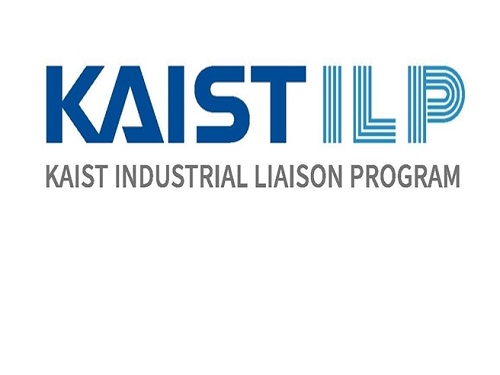 Industrial Liaison Program to Provide Comprehensive Consultation Services
The ILP’s one-stop solutions target all industrial sectors including conglomerates, small and medium-sized enterprises, venture companies, venture capital (VC) firms, and government-affiliated organizations.
The Industrial Liaison Center at KAIST launched the Industrial Liaison Program (ILP) on September 28, an industry-academic cooperation project to provide comprehensive solutions to industry partners. The Industrial Liaison Center will recruit member companies for this service every year, targeting all industrial sectors including conglomerates, small and medium-sized enterprises, venture companies, venture capital (VC) firms, and government-affiliated organizations.
The program plans to build a one-stop support system that can systematically share and use excellent resource information from KAIST’s research teams, R&D achievements, and infrastructure to provide member companies with much-needed services.
More than 40 KAIST professors with abundant academic-industrial collaboration experience will participate in the program. Experts from various fields with different points of view and experiences will jointly provide solutions to ILP member companies. To actively participate in academic-industrial liaisons and joint consultations, KAIST assigned 10 professors from related fields as program directors.
The program directors will come from four different fields including AI/robots (Professor Alice Oh, School from the School of Computing, Professor Young Jae Jang from the Department of Industrial & Systems Engineering, and Professor Yong-Hwa Park from Department of Mechanical Engineering), bio/medicine (Professor Daesoo Kim from Department of Biological Sciences and Professor YongKeun Park from Department of Physics), materials/electronics (Professor Sang Ouk Kim from the Department of Materials Science and Engineering and Professors Jun-Bo Yoon and Seonghwan Cho from the School of Electrical Engineering), and environment/energy (Professor Hee-Tak Kim from the Department of Biological Sciences and Professor Hoon Sohn from the Department of Civil and Environmental Engineering).
The transdisciplinary board of consulting professors that will lead technology innovation is composed of 30 professors including Professor Min-Soo Kim (School of Computing, AI), Professor Chan Hyuk Kim (Department of Biological Sciences, medicine), Professor Hae-Won Park (Department of Mechanical Engineering, robots), Professor Changho Suh (School of Electrical Engineering, electronics), Professor Haeshin Lee (Department of Chemistry, bio), Professor Il-Doo Kim (Department of Materials Science and Engineering, materials), Professor HyeJin Kim (School of Business Technology and Management), and Professor Byoung Pil Kim (School of Business Technology and Management, technology law)
The Head of the Industrial Liaison Center who is also in charge of the program, Professor Keon Jae Lee, said, “In a science and technology-oriented generation where technological supremacy determines national power, it is indispensable to build a new platform upon which innovative academic-industrial cooperation can be pushed forward in the fields of joint consultation, the development of academic-industrial projects, and the foundation of new industries.
He added, “KAIST professors carry out world-class research in many different fields and faculty members can come together through the ILP to communicate with representatives from industry to improve their corporations’ global competitiveness and further contribute to our nation’s interests by cultivating strong small enterprises
2021.09.30 View 6684
Industrial Liaison Program to Provide Comprehensive Consultation Services
The ILP’s one-stop solutions target all industrial sectors including conglomerates, small and medium-sized enterprises, venture companies, venture capital (VC) firms, and government-affiliated organizations.
The Industrial Liaison Center at KAIST launched the Industrial Liaison Program (ILP) on September 28, an industry-academic cooperation project to provide comprehensive solutions to industry partners. The Industrial Liaison Center will recruit member companies for this service every year, targeting all industrial sectors including conglomerates, small and medium-sized enterprises, venture companies, venture capital (VC) firms, and government-affiliated organizations.
The program plans to build a one-stop support system that can systematically share and use excellent resource information from KAIST’s research teams, R&D achievements, and infrastructure to provide member companies with much-needed services.
More than 40 KAIST professors with abundant academic-industrial collaboration experience will participate in the program. Experts from various fields with different points of view and experiences will jointly provide solutions to ILP member companies. To actively participate in academic-industrial liaisons and joint consultations, KAIST assigned 10 professors from related fields as program directors.
The program directors will come from four different fields including AI/robots (Professor Alice Oh, School from the School of Computing, Professor Young Jae Jang from the Department of Industrial & Systems Engineering, and Professor Yong-Hwa Park from Department of Mechanical Engineering), bio/medicine (Professor Daesoo Kim from Department of Biological Sciences and Professor YongKeun Park from Department of Physics), materials/electronics (Professor Sang Ouk Kim from the Department of Materials Science and Engineering and Professors Jun-Bo Yoon and Seonghwan Cho from the School of Electrical Engineering), and environment/energy (Professor Hee-Tak Kim from the Department of Biological Sciences and Professor Hoon Sohn from the Department of Civil and Environmental Engineering).
The transdisciplinary board of consulting professors that will lead technology innovation is composed of 30 professors including Professor Min-Soo Kim (School of Computing, AI), Professor Chan Hyuk Kim (Department of Biological Sciences, medicine), Professor Hae-Won Park (Department of Mechanical Engineering, robots), Professor Changho Suh (School of Electrical Engineering, electronics), Professor Haeshin Lee (Department of Chemistry, bio), Professor Il-Doo Kim (Department of Materials Science and Engineering, materials), Professor HyeJin Kim (School of Business Technology and Management), and Professor Byoung Pil Kim (School of Business Technology and Management, technology law)
The Head of the Industrial Liaison Center who is also in charge of the program, Professor Keon Jae Lee, said, “In a science and technology-oriented generation where technological supremacy determines national power, it is indispensable to build a new platform upon which innovative academic-industrial cooperation can be pushed forward in the fields of joint consultation, the development of academic-industrial projects, and the foundation of new industries.
He added, “KAIST professors carry out world-class research in many different fields and faculty members can come together through the ILP to communicate with representatives from industry to improve their corporations’ global competitiveness and further contribute to our nation’s interests by cultivating strong small enterprises
2021.09.30 View 6684 -
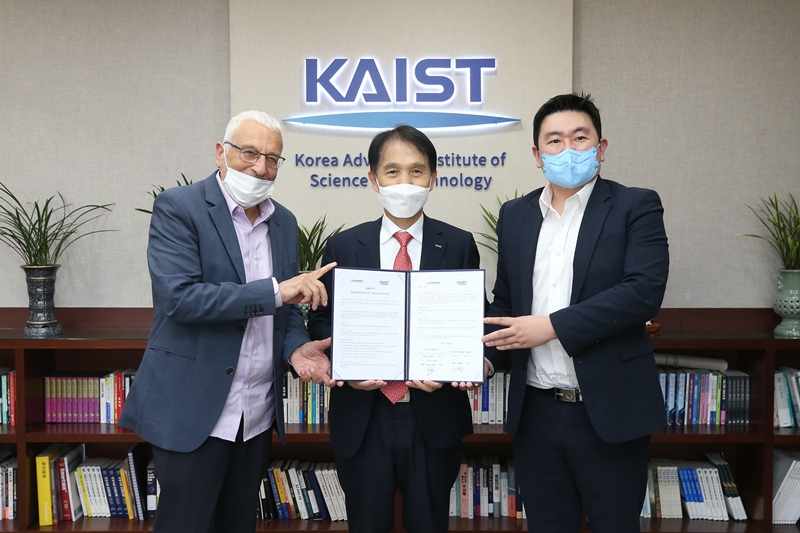 KAIST Teams Up with Yozma Group to Nurture Startups
KAIST has joined hands with Israeli venture capital investor Yozma Group to help campus-based startups grow and build success. The two signed a memorandum of understanding (MOU) on joint technology value creation initiatives at the signing ceremony that was held at KAIST’s main campus in Daejeon on April 8.
Under the MOU, Yozma Group will make investments and implement acceleration programs for startups established by KAIST professors, graduates, and students, as well as those invested in by the university.
Yozma Group already launched a $70 million fund to help grow companies in Korea and Israel. Yozma Group will use the fund as well as its global acceleration know-how and network of over 400 R&D centers across Israel to help promising KAIST startups enter overseas markets.
Moreover, Yozma Group also plans to discover and support KAIST startups that need technology from the Weizmann Institute of Science, Israel’s leading multidisciplinary basic research institution in natural and exact sciences.
KAIST is also in talks to locate Yozma Group’s branch office on the university’s campus to ensure seamless collaborations.
KAIST President Kwang Hyung Lee explained to Yozma Group’s Founder and Chairman Yigal Erlich and Head of Asia Pacific Won-Jae Lee at the MOU signing ceremony that “startup and technology commercialization are the crucial areas where KAIST will make innovations.”
“Cooperation with Yozma Group will help KAIST startups transform their ideas and technologies into real businesses and build a global presence,” he added.
Yozma Group started as Yozma Fund, created in conjunction with the Israeli government in 1993 to support the globalization of Israeli startups and to foster the growth of Israel’s venture capital industry. The Fund, which was privatized in 1998, has supported 97 Israeli tech ventures joining the Nasdaq, leading Israel to become a global innovation hub that has the third-most companies listed on the Nasdaq.
(END)
2021.04.20 View 7293
KAIST Teams Up with Yozma Group to Nurture Startups
KAIST has joined hands with Israeli venture capital investor Yozma Group to help campus-based startups grow and build success. The two signed a memorandum of understanding (MOU) on joint technology value creation initiatives at the signing ceremony that was held at KAIST’s main campus in Daejeon on April 8.
Under the MOU, Yozma Group will make investments and implement acceleration programs for startups established by KAIST professors, graduates, and students, as well as those invested in by the university.
Yozma Group already launched a $70 million fund to help grow companies in Korea and Israel. Yozma Group will use the fund as well as its global acceleration know-how and network of over 400 R&D centers across Israel to help promising KAIST startups enter overseas markets.
Moreover, Yozma Group also plans to discover and support KAIST startups that need technology from the Weizmann Institute of Science, Israel’s leading multidisciplinary basic research institution in natural and exact sciences.
KAIST is also in talks to locate Yozma Group’s branch office on the university’s campus to ensure seamless collaborations.
KAIST President Kwang Hyung Lee explained to Yozma Group’s Founder and Chairman Yigal Erlich and Head of Asia Pacific Won-Jae Lee at the MOU signing ceremony that “startup and technology commercialization are the crucial areas where KAIST will make innovations.”
“Cooperation with Yozma Group will help KAIST startups transform their ideas and technologies into real businesses and build a global presence,” he added.
Yozma Group started as Yozma Fund, created in conjunction with the Israeli government in 1993 to support the globalization of Israeli startups and to foster the growth of Israel’s venture capital industry. The Fund, which was privatized in 1998, has supported 97 Israeli tech ventures joining the Nasdaq, leading Israel to become a global innovation hub that has the third-most companies listed on the Nasdaq.
(END)
2021.04.20 View 7293 -
 KAIST Technology Value Tops in Commercialization Market
KAIST became the first Korean university to achieve 10.183 billion KRW in annual technology royalties, and was also selected as an ‘Institution of Outstanding Patent Quality Management’ and an ‘Institution of Outstanding Public Patent Technology Transfer’ for 2020.
KAIST earns its technology royalties through 56 technology transfer contracts. Following KAIST in the rankings were Seoul National University (SNU) in second place with 8.8 billion KRW from 87 contracts and Korea University (KU) in the third with 5.4 billion KRW from 133 contracts. The data shows the high value of KAIST-created technology in the market.
The Korean Intellectual Property Office (KIPO) started to recognize the Institution of Outstanding Patent Quality Management this year to encourage profit-driven patent management at universities and public research institutes, and KAIST was selected as one of the four first recipients of this distinction.
In addition, KAIST was selected as an Institution of Outstanding Public Patent Technology Transfer, a title given by KIPO to three universities and public research institutes this year with outstanding achievements in technology transfers and commercialization to encourage patent utilization.
Director of the KAIST Institute of Technology Value Creation (ITVC) Professor Kyung-cheol Choi said that KAIST’s achievement in annual technology royalties and technology transfers and commercialization were prime examples of accelerating competitiveness in intellectual property through innovative R&D investment.
In April, KAIST expanded and reorganized its Industry-Academia Collaboration Team into the ITVC to support technology transfers and commercialization. Specialized organizations such as the Intellectual Property and Technology Transfer Center and Industrial Liaison Center have been established under the ITVC, and industry experts have been recruited as special professors focusing on industry-academia collaborations to enhance its specialized functions.
KAIST also operates an enterprise membership system and technology consulting system, aimed at sharing its outstanding intellectual property within domestic industries. In 2019, it secured a technology transfer commercialization fund of 1.2 billion KRW available for three years under KIPO’s Intellectual Property Profit Reinvestment Support Program (formerly the Korean Patent Gap Fund Creation Project).
This program was introduced to bridge the gap between the technology developed in universities and the level of technology required by industry. Under the program, bold investments are made in early-stage technologies at the research paper or experiment phase.
The program encourages enterprises to take active steps for the transfer of technologies by demonstrating their commercial potential through prototype production, testing and certification, and standard patent filing. KAIST is currently funding approximately 20 new technologies under this program as of July 2020.
KAIST’s outstanding intellectual property management has also received international recognition, with its selection as Asia’s leading institution in university R&D intellectual property at the Intellectual Property Business Congress (IPBC) Asia 2019 held in Tokyo, Japan last October.
(END)
2020.08.18 View 9775
KAIST Technology Value Tops in Commercialization Market
KAIST became the first Korean university to achieve 10.183 billion KRW in annual technology royalties, and was also selected as an ‘Institution of Outstanding Patent Quality Management’ and an ‘Institution of Outstanding Public Patent Technology Transfer’ for 2020.
KAIST earns its technology royalties through 56 technology transfer contracts. Following KAIST in the rankings were Seoul National University (SNU) in second place with 8.8 billion KRW from 87 contracts and Korea University (KU) in the third with 5.4 billion KRW from 133 contracts. The data shows the high value of KAIST-created technology in the market.
The Korean Intellectual Property Office (KIPO) started to recognize the Institution of Outstanding Patent Quality Management this year to encourage profit-driven patent management at universities and public research institutes, and KAIST was selected as one of the four first recipients of this distinction.
In addition, KAIST was selected as an Institution of Outstanding Public Patent Technology Transfer, a title given by KIPO to three universities and public research institutes this year with outstanding achievements in technology transfers and commercialization to encourage patent utilization.
Director of the KAIST Institute of Technology Value Creation (ITVC) Professor Kyung-cheol Choi said that KAIST’s achievement in annual technology royalties and technology transfers and commercialization were prime examples of accelerating competitiveness in intellectual property through innovative R&D investment.
In April, KAIST expanded and reorganized its Industry-Academia Collaboration Team into the ITVC to support technology transfers and commercialization. Specialized organizations such as the Intellectual Property and Technology Transfer Center and Industrial Liaison Center have been established under the ITVC, and industry experts have been recruited as special professors focusing on industry-academia collaborations to enhance its specialized functions.
KAIST also operates an enterprise membership system and technology consulting system, aimed at sharing its outstanding intellectual property within domestic industries. In 2019, it secured a technology transfer commercialization fund of 1.2 billion KRW available for three years under KIPO’s Intellectual Property Profit Reinvestment Support Program (formerly the Korean Patent Gap Fund Creation Project).
This program was introduced to bridge the gap between the technology developed in universities and the level of technology required by industry. Under the program, bold investments are made in early-stage technologies at the research paper or experiment phase.
The program encourages enterprises to take active steps for the transfer of technologies by demonstrating their commercial potential through prototype production, testing and certification, and standard patent filing. KAIST is currently funding approximately 20 new technologies under this program as of July 2020.
KAIST’s outstanding intellectual property management has also received international recognition, with its selection as Asia’s leading institution in university R&D intellectual property at the Intellectual Property Business Congress (IPBC) Asia 2019 held in Tokyo, Japan last October.
(END)
2020.08.18 View 9775 -
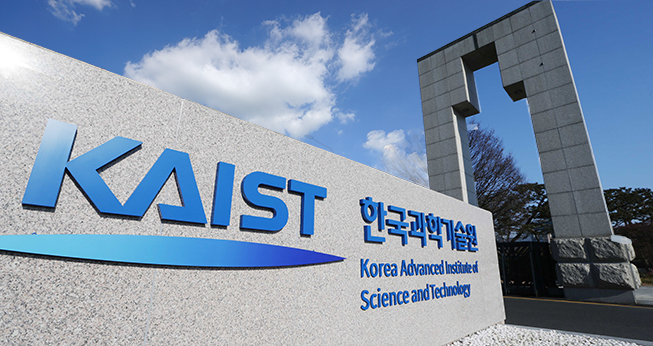 OUIC Presents the Six Most Promising Techs Transferrable to Local SMEs
KAIST will showcase the six most promising technologies for small and medium enterprises (SMEs) on November 14 in the Academic Cultural Complex. To strengthen the competitive edge of local SMEs in Daejeon, the Office of University-Industry made a survey of their technological needs and came up with the six most promising technologies. Developers will introduce their technologies during the session.Besides the introduction of the promising technologies, the session will also provide a program named University to Business (U2B) to match up technologies according to the SMEs’ needs. SMEs who wish to engage in technology transfers can receive counseling and other support programs during the session.First, Professor Seok-Hyung Bae from the Department of Industrial Design will present a technology for controlling cooperation robots. Professor Bae inserted flexible materials between the controllers to allow robots to use both hands stably and operate more accurately and swiftly. It can be applied to automatic robots, industrial robots, and service robots.Professor Hyun Myung from the Department of Civil & Environmental Engineering will demonstrate a robot navigation system in a dynamic indoor and outdoor environment, which can be applied to robotics in logistics, smart factories, and autonomous vehicles. Providing robust simultaneous localization and mapping systems, this technology shows high-performing navigation with low-cost sensors.Meanwhile, Professor Siyoung Choi from the Department of Chemical and Biomolecular Engineering will introduce a technology for forming stable adhesive emulsions. An emulsion is a stable mixture of water and oil. Conventionally, a small amount of surfactant is added to stabilize an emulsion. Here, Professor Choi developed a stable emulsion system without using any chemical substances. This technology can be applied to various fields, including the cosmetics, pharmaceutical, semiconductor, and painting industries. The session will also present smart IoTs platform technology developed by Professor Jinhong Yang from the KAIST Institute for IT Convergence. His technology minimizes errors occurring when multiple IoT devices are connected simultaneously. Professor Yong Keun Park from the Department of Physics will introduce a technology for measuring glycated hemoglobin by using the optical properties of red blood cells. This technology can be applied to make low-cost, small-sized measuring equipment. It can also be used for vitro diagnoses including diabetes, cardiovascular disorders, tumors, kidney disease, and infectious diseases. Professor Yong Man Ro from the School of Electrical Engineering will show technology for biometric access control. Conventional technologies for face recognition fall behind other biometrics. Professor Ro and his team developed a facial dynamics interpreting network which allows very accurate facial recognition by interpreting the relationships between facial local dynamics and estimating facial traits. This technology can be applied to security and communication in finance, computers, and information system.KAIST President Sung-Chul Shin said, “KAIST will continue to support SMEs to have stronger competitiveness in the market. Through technology transfer, we will drive innovation in technological commercialization where a university’s research and development creates economic value.”
2018.11.13 View 8857
OUIC Presents the Six Most Promising Techs Transferrable to Local SMEs
KAIST will showcase the six most promising technologies for small and medium enterprises (SMEs) on November 14 in the Academic Cultural Complex. To strengthen the competitive edge of local SMEs in Daejeon, the Office of University-Industry made a survey of their technological needs and came up with the six most promising technologies. Developers will introduce their technologies during the session.Besides the introduction of the promising technologies, the session will also provide a program named University to Business (U2B) to match up technologies according to the SMEs’ needs. SMEs who wish to engage in technology transfers can receive counseling and other support programs during the session.First, Professor Seok-Hyung Bae from the Department of Industrial Design will present a technology for controlling cooperation robots. Professor Bae inserted flexible materials between the controllers to allow robots to use both hands stably and operate more accurately and swiftly. It can be applied to automatic robots, industrial robots, and service robots.Professor Hyun Myung from the Department of Civil & Environmental Engineering will demonstrate a robot navigation system in a dynamic indoor and outdoor environment, which can be applied to robotics in logistics, smart factories, and autonomous vehicles. Providing robust simultaneous localization and mapping systems, this technology shows high-performing navigation with low-cost sensors.Meanwhile, Professor Siyoung Choi from the Department of Chemical and Biomolecular Engineering will introduce a technology for forming stable adhesive emulsions. An emulsion is a stable mixture of water and oil. Conventionally, a small amount of surfactant is added to stabilize an emulsion. Here, Professor Choi developed a stable emulsion system without using any chemical substances. This technology can be applied to various fields, including the cosmetics, pharmaceutical, semiconductor, and painting industries. The session will also present smart IoTs platform technology developed by Professor Jinhong Yang from the KAIST Institute for IT Convergence. His technology minimizes errors occurring when multiple IoT devices are connected simultaneously. Professor Yong Keun Park from the Department of Physics will introduce a technology for measuring glycated hemoglobin by using the optical properties of red blood cells. This technology can be applied to make low-cost, small-sized measuring equipment. It can also be used for vitro diagnoses including diabetes, cardiovascular disorders, tumors, kidney disease, and infectious diseases. Professor Yong Man Ro from the School of Electrical Engineering will show technology for biometric access control. Conventional technologies for face recognition fall behind other biometrics. Professor Ro and his team developed a facial dynamics interpreting network which allows very accurate facial recognition by interpreting the relationships between facial local dynamics and estimating facial traits. This technology can be applied to security and communication in finance, computers, and information system.KAIST President Sung-Chul Shin said, “KAIST will continue to support SMEs to have stronger competitiveness in the market. Through technology transfer, we will drive innovation in technological commercialization where a university’s research and development creates economic value.”
2018.11.13 View 8857 -
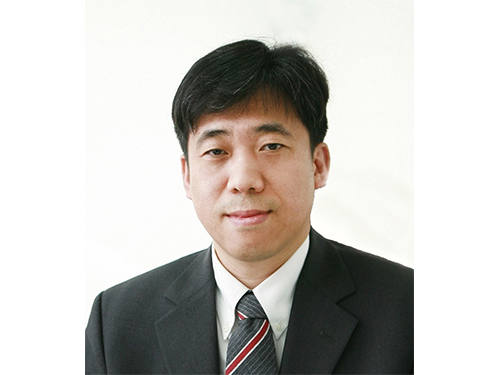 Professor Ki-Jun Jeong Wins the 2015 Dam Yeun Academic Award
The 11th Dam Yeun Academic Award presented by the Korean Society for Biotechnology and Bioengineering (KSBB) to a biologist under 45 years old went to Professor Ki-Jun Jeong of the Chemical and Biomolecular Engineering Department at KAIST.
The award ceremony took place on October 13, 2015, at the annual conference of KSBB held at Songdo Convensia in Incheon City.
Each year KSBB announces the recipient of the award based on the publications by researchers in the last five years at peer-reviewed international journals or KSBB Journal as well as the record of patent registration and technology transfers.
Professor Jeong is recognized for his pioneering research in protein, antibody, cellular engineering, and protein displays and chips.
2015.10.19 View 9074
Professor Ki-Jun Jeong Wins the 2015 Dam Yeun Academic Award
The 11th Dam Yeun Academic Award presented by the Korean Society for Biotechnology and Bioengineering (KSBB) to a biologist under 45 years old went to Professor Ki-Jun Jeong of the Chemical and Biomolecular Engineering Department at KAIST.
The award ceremony took place on October 13, 2015, at the annual conference of KSBB held at Songdo Convensia in Incheon City.
Each year KSBB announces the recipient of the award based on the publications by researchers in the last five years at peer-reviewed international journals or KSBB Journal as well as the record of patent registration and technology transfers.
Professor Jeong is recognized for his pioneering research in protein, antibody, cellular engineering, and protein displays and chips.
2015.10.19 View 9074 -
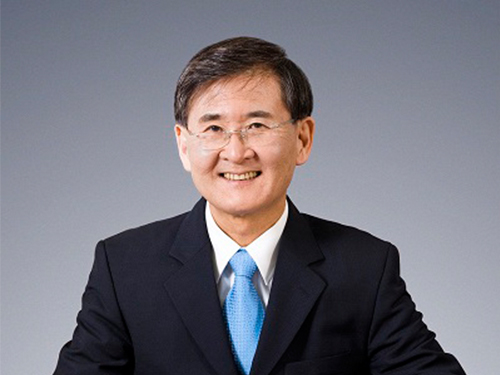 President Steve Kang of KAIST Attends the 2014 Summer Davos Forum in Tianjin, China
President Steve Kang of KAIST will attend the 2014 Annual Meeting of the New Champions, the World Economic Forum (WEF), to be held on September 10-12, 2014 in Tianjin, China.
KAIST holds its own IdeasLab session on nanotechnology on September 12, 2014.
On September 10, 2014, President Steve Kang will participate in a private session hosted by the Global University Leaders Forum (GULF) community at WEF as a panelist.
In addition to President Kang, eight presidents from top global universities such as the National University of Singapore, Peking University, ETH Zurich (Swiss Federal Institute of Technology), University of Tokyo, and Carnegie Mellon University will join the panel discussion under the topic, “Increasing the Translational Impact of University Research.” Specifically, the presidents will address issues related to the importance of university-led technology transfer in Asia, key strategies and goals for technology transfer, and implementation approaches taken by each university to promote technology transfer from university to industry.
President Kang was invited to this GULF session, the only attendant from Korean universities, in recognition of his long time experience and expertise in education and research.
In 2006, WEF created the GULF, a small community of the presidents of top universities in the world, aiming to offer an open platform for high-level dialogues on issues of higher education and research with other sectors, as well as to foster collaboration between universities in areas of significance for global policy.
As of 2014, a total of 25 globally leading universities, including Harvard University, University of Cambridge, and Massachusetts Institute of Technology, are GULF members. KAIST, which joined the club this year, is the only Korean university.
The 2014 Annual Meeting of the New Champions, also known as the Summer Davos Forum, hosts numerous sessions under the theme of “Creating Value through Innovation.” At the Forum, a total of ten IdeasLab sessions will be hosted. KAIST was invited to run its own IdeasLab on nanotechnology on September 12, 2014.
Together with President Kang, Professors Sang Ouk Kim and Keon Jae Lee from the Department of Materials Science Engineering, KAIST, and Professors Sang Yup Lee and Hyunjoo Lee from the Department of Chemical and Biomolecular Engineering, KAIST, will present their own speeches on the topic entitled “From diagnostics to materials, how is nanotechnology changing lives?”
President Kang will give the opening speech at the KAIST IdeasLab.
He said that an invitation from WEF to join the IdeasLab spoke well for KAIST:
“KAIST is the first and the only Korean university ever invited to run its own IdeasLab at the World Economic Forum. The IdeasLab is an expert group meeting, conducted only by the world’s most prestigious universities and research institutes. At the IdeasLab sessions, global leaders from different sectors identify major issues facing higher education and humanity and explore solutions through science and technology innovation. Holding our own IdeasLab on one of our strongest fields, nanotechnology, is indeed an excellent opportunity for KAIST to show its strength in academic and research excellence on the global stage.”
2014.09.08 View 14178
President Steve Kang of KAIST Attends the 2014 Summer Davos Forum in Tianjin, China
President Steve Kang of KAIST will attend the 2014 Annual Meeting of the New Champions, the World Economic Forum (WEF), to be held on September 10-12, 2014 in Tianjin, China.
KAIST holds its own IdeasLab session on nanotechnology on September 12, 2014.
On September 10, 2014, President Steve Kang will participate in a private session hosted by the Global University Leaders Forum (GULF) community at WEF as a panelist.
In addition to President Kang, eight presidents from top global universities such as the National University of Singapore, Peking University, ETH Zurich (Swiss Federal Institute of Technology), University of Tokyo, and Carnegie Mellon University will join the panel discussion under the topic, “Increasing the Translational Impact of University Research.” Specifically, the presidents will address issues related to the importance of university-led technology transfer in Asia, key strategies and goals for technology transfer, and implementation approaches taken by each university to promote technology transfer from university to industry.
President Kang was invited to this GULF session, the only attendant from Korean universities, in recognition of his long time experience and expertise in education and research.
In 2006, WEF created the GULF, a small community of the presidents of top universities in the world, aiming to offer an open platform for high-level dialogues on issues of higher education and research with other sectors, as well as to foster collaboration between universities in areas of significance for global policy.
As of 2014, a total of 25 globally leading universities, including Harvard University, University of Cambridge, and Massachusetts Institute of Technology, are GULF members. KAIST, which joined the club this year, is the only Korean university.
The 2014 Annual Meeting of the New Champions, also known as the Summer Davos Forum, hosts numerous sessions under the theme of “Creating Value through Innovation.” At the Forum, a total of ten IdeasLab sessions will be hosted. KAIST was invited to run its own IdeasLab on nanotechnology on September 12, 2014.
Together with President Kang, Professors Sang Ouk Kim and Keon Jae Lee from the Department of Materials Science Engineering, KAIST, and Professors Sang Yup Lee and Hyunjoo Lee from the Department of Chemical and Biomolecular Engineering, KAIST, will present their own speeches on the topic entitled “From diagnostics to materials, how is nanotechnology changing lives?”
President Kang will give the opening speech at the KAIST IdeasLab.
He said that an invitation from WEF to join the IdeasLab spoke well for KAIST:
“KAIST is the first and the only Korean university ever invited to run its own IdeasLab at the World Economic Forum. The IdeasLab is an expert group meeting, conducted only by the world’s most prestigious universities and research institutes. At the IdeasLab sessions, global leaders from different sectors identify major issues facing higher education and humanity and explore solutions through science and technology innovation. Holding our own IdeasLab on one of our strongest fields, nanotechnology, is indeed an excellent opportunity for KAIST to show its strength in academic and research excellence on the global stage.”
2014.09.08 View 14178 -
 KAIST-Tsinghua High-Tech EXPO 2004
THE KAIST Herald 2004.5.12
By Jong-kyoung KimThe KAIST Herald Staff Reporter
KAIST and Tsinghua University are holding KAIST-Tsinghua Korea-China High Tech EXPO 2004 from July 12 to 14, at the Beijing International Convention Center. The Expo seeks to contribute to economic development through promoting exchanges between exceptional Korean and Chinese start-up companies, and to promote cooperation between high-tech industries and academic institutions through academic and technological exchanges between each nation"s best technology institutions.
The Expo is a big international affair held by a university from Korea and one from China. The Expo is also a means to implement the agreement between KAIST and Tsinghua in 2002 to promote exchanges between the two universities and to conduct international co-research. It is sponsored by various technology institutions of both nations.
The Expo is different from other expos in that it is a specialized expo where Tsinghua-related companies, experts, and buyers participate to discuss the transfer of technologies and to deal in trades. Also, to insure that the Expo is beneficial to participating Korean companies, the Expo plans to offer business talks with at least ten Chinese companies per company. From Korea, thirteen companies from enterprise-incubation center and graduate start-ups with high-tech start-ups in areas of IT, BT, NT and mechatronics that are possible in exporting related products or transferring related technologies are participating. From China, Tsinghua-related companies, China Telecom, China Unicom, and other companies under China Telecommunication Association with other famous Chinese companies are expected to participate.
In addition to exhibitions, co-work between KAIST and Tsinghua"s research centers and KAIST"s Technology Transfer & Exchange Center"s explanation on public technology transfer are taking place during the Expo.
And, after three days of the Expo, about ten companies will move to Chungking, a city in western China to hold a product and technology explanation session.
2004.05.21 View 19497
KAIST-Tsinghua High-Tech EXPO 2004
THE KAIST Herald 2004.5.12
By Jong-kyoung KimThe KAIST Herald Staff Reporter
KAIST and Tsinghua University are holding KAIST-Tsinghua Korea-China High Tech EXPO 2004 from July 12 to 14, at the Beijing International Convention Center. The Expo seeks to contribute to economic development through promoting exchanges between exceptional Korean and Chinese start-up companies, and to promote cooperation between high-tech industries and academic institutions through academic and technological exchanges between each nation"s best technology institutions.
The Expo is a big international affair held by a university from Korea and one from China. The Expo is also a means to implement the agreement between KAIST and Tsinghua in 2002 to promote exchanges between the two universities and to conduct international co-research. It is sponsored by various technology institutions of both nations.
The Expo is different from other expos in that it is a specialized expo where Tsinghua-related companies, experts, and buyers participate to discuss the transfer of technologies and to deal in trades. Also, to insure that the Expo is beneficial to participating Korean companies, the Expo plans to offer business talks with at least ten Chinese companies per company. From Korea, thirteen companies from enterprise-incubation center and graduate start-ups with high-tech start-ups in areas of IT, BT, NT and mechatronics that are possible in exporting related products or transferring related technologies are participating. From China, Tsinghua-related companies, China Telecom, China Unicom, and other companies under China Telecommunication Association with other famous Chinese companies are expected to participate.
In addition to exhibitions, co-work between KAIST and Tsinghua"s research centers and KAIST"s Technology Transfer & Exchange Center"s explanation on public technology transfer are taking place during the Expo.
And, after three days of the Expo, about ten companies will move to Chungking, a city in western China to hold a product and technology explanation session.
2004.05.21 View 19497